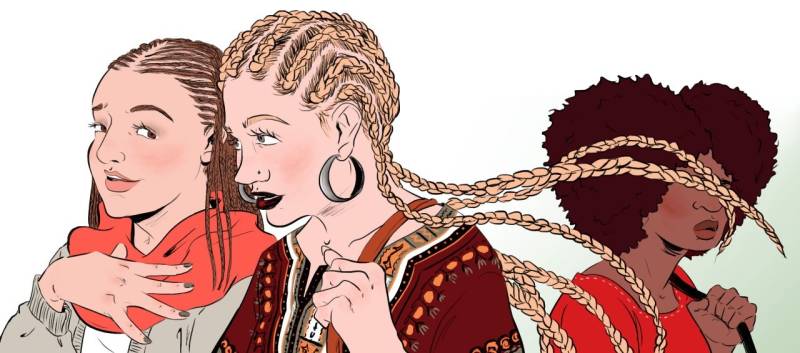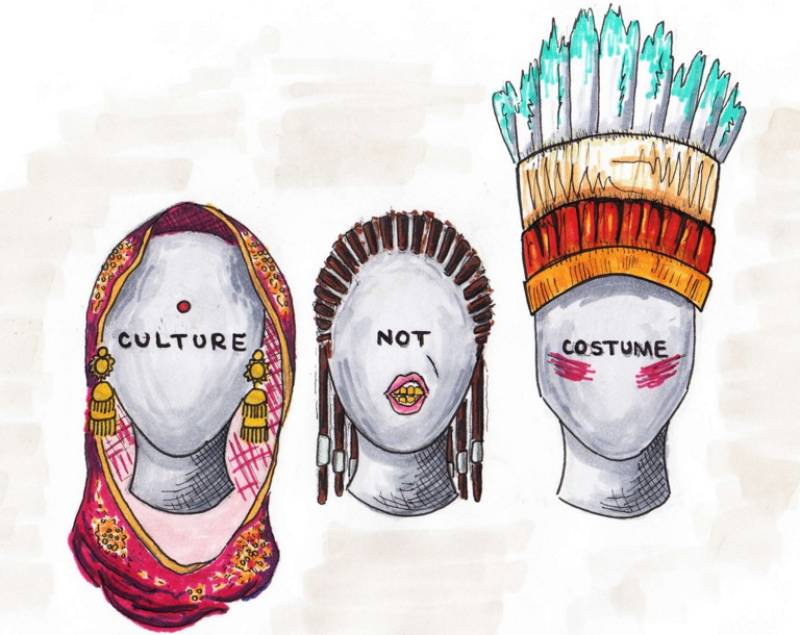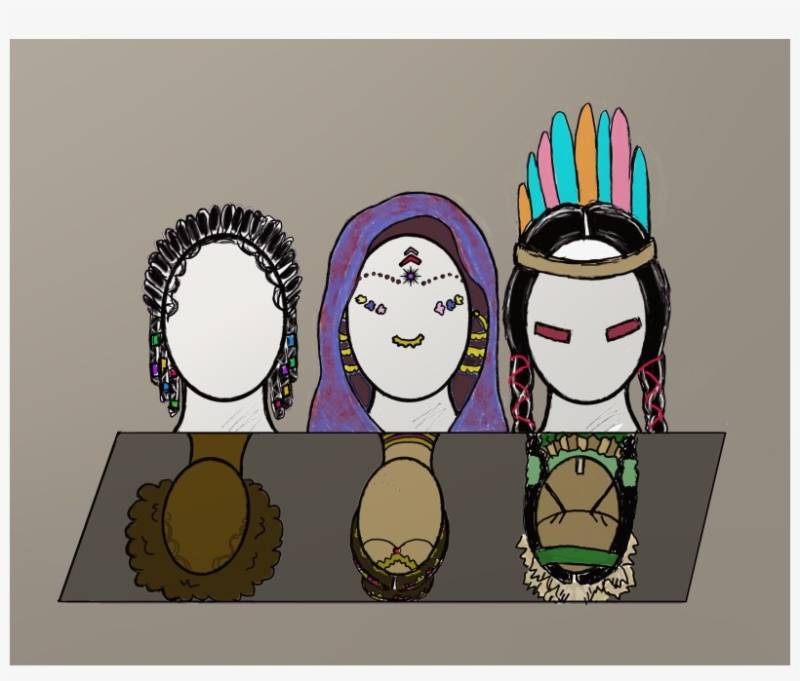Cultural Appropriation Is The Parasite That Continues To Wipe Away Cultures
Written By: Manahil Naveed

It’s relatively easy for us to experience another culture today. Film, television, and social media keep us connected at all times, giving us a glimpse into how other people around the world live. How they dress. What they eat. What holidays and traditions they celebrate. All this connection can inspire genuine cultural appreciation. However, experiencing another culture doesn’t automatically mean you understand it, or that you should start claiming elements of that culture as your own.
The line between the phenomenon of cultural appreciation and cultural appropriation is extremely thin and easy to cross. Instead of honoring another culture, appropriation demeans and dishonors - it perpetuates harmful stereotypes and deepens the pre-existing divides between communities. But it can be avoided; we can honor and celebrate other cultures without inadvertently diminishing them along the way.
What Is Cultural Appreciation, and How is it Different From Cultural Appropriation?

Cultural appreciation is when you earnestly seek to learn about or explore a different culture.
You learn. You listen. You strive to understand. You seek to honor its beliefs and traditions. Not for your own personal gain—money, fame, or the Instagram photo. But to simply honor the culture and its people.
Appreciating different cultures like this is a fantastic part of being alive today. The problem is, there’s a fine line between appreciating a culture and appropriating from it.
But what exactly is cultural appropriation? It’s something many of us are just recently coming to understand. It wasn’t until 2017 that the term was added to the Oxford English Dictionary, which defined it as: “The unacknowledged or inappropriate adoption of the practices, customs, or aesthetics of one social or ethnic group by members of another (typically dominant) community or society.”
There are many examples of cultural appropriation, easily visible in pop culture, sports, the arts, and even the fashion industry. But it isn’t just celebrities that get stuck. All of us are susceptible to this.
For instance, it’s popular to refer to your group of friends as your “tribe.”
It’s meant to express closeness between you and your friends, but it can actually be a form of appropriation, perpetuating a harmful stereotype of both African and Native American cultures—specifically, the notion that they are somehow less “civilized” than other cultures. Used this way, the term demeans these cultures rather than honoring them.
Cultural Appreciation vs. Cultural Appropriation: How To Honor Other Cultures

1: Give More Than Just Credit
Credit alone is not enough. This is where celebrities and brands alike often go wrong—for example, when they hold a fashion show and dedicate it to a certain culture. They do so as a form of honor and celebration, yet referencing someone else’s culture isn’t enough.
You need to go beyond giving credit to a culture and instead involve them in the conversation. This works on an individual level, too. If you want to celebrate a culture that isn’t your own, don’t go it alone. Involve people in that culture, ask them questions (assuming they want to be involved), and invite them to share their stories and experiences.



2: Be Conscious and Intentional
Apologizing later won’t help. So before you do anything, think about what you’re doing and who it may impact.
Ask yourself the following questions:
Do I understand the significance of what I’m doing here?
Am I honoring this culture or simply imitating it?
Am I perpetuating a stereotype that might hurt those who belong to this culture?
Am I doing this as a personal opportunity to interact with and experience another culture, or am I doing this for a photo I can post online?
Why are you doing all this? What’s your intention? Take the time to ask yourself the hard questions.
That alone can be enough to make you step back and think. After all, cultural appropriation often comes more from ignorance than hate.
3: Don’t Borrow What You Don’t Understand
It may sound obvious, but do you actually understand the culture you’re trying to celebrate? Or do you simply have a basic knowledge of it from an article you read or a Netflix documentary you watched?
A good rule of thumb is to only honor cultures you understand in-depth, that you’ve taken serious time to study. Have you spoken to people who are a part of that culture? Can you openly discuss this culture in detail, or would you struggle to hold a conversation?
If you don’t understand a culture, you’re far more likely to fall into cultural appropriation rather than cultural appreciation. People often fall into this trap when getting a tattoo that features a symbol from someone else’s culture, for example. Again, ask yourself your intention of using that symbol. Is it for your gain or are you honoring someone else?
4: Educate Yourself
So many aspects of life today were stolen from other cultures.
This is especially true for white cultures, who have laid claim to so many certain foods, dances, figures of speech, and music that originated elsewhere. It’s important we educate ourselves to this fact, whatever culture we’re a part of.
What do you take for granted today that originated from a different culture?
How well do you know your own culture and its relationship to other cultures throughout history?
The reality is, most of us are largely unaware of what happened before us, even if we’ve studied history. Most of us learned about racism and slavery, but do you know the words, customs, and practices that are wrapped up in this part of the American story? Did you know, for example, that popular terms like “peanut gallery” and “uppity” have racist origins?
Once you educate yourself about your own culture and where it came from, it’s easier to practice genuine care and concern for others.
